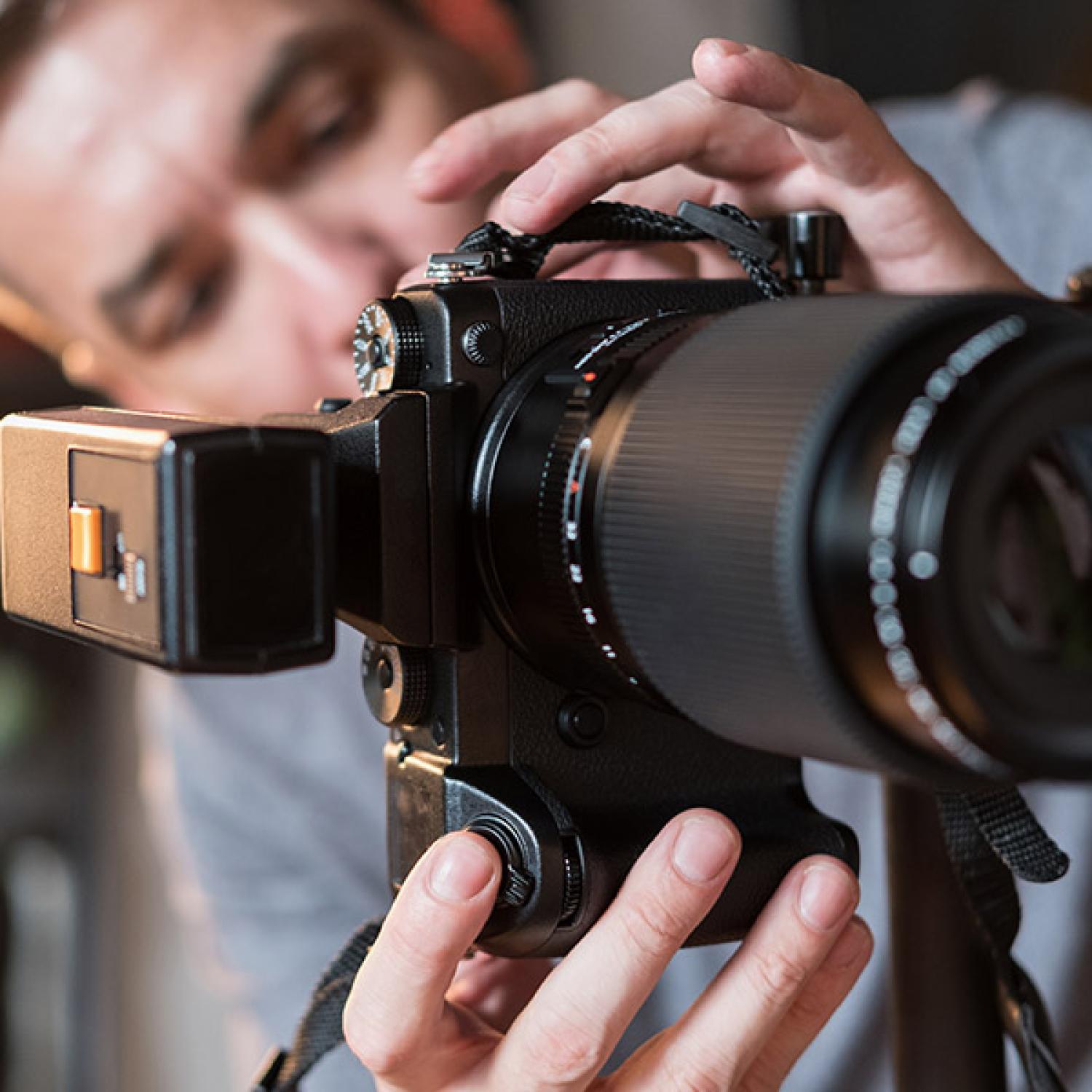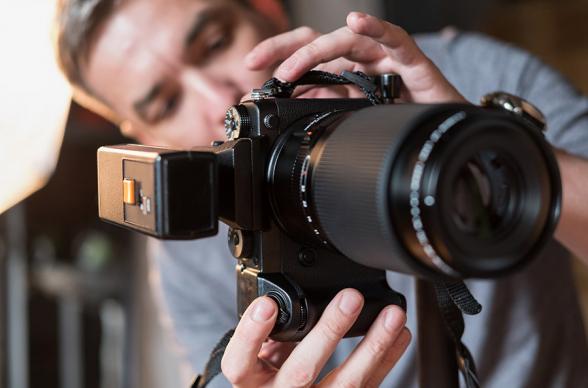Why do photographers need insurance?
Creative differences
Photoshoots can go wrong. You’ll talk through the plans with your client several times, but there’s always the chance the results aren’t what they wanted. If there’s a misunderstanding over something you thought was agreed, your client might take legal action against you. This is where photographers may find a tailored insurance policy useful.
A fashion designer may be unhappy with your catwalk shots, for example. Or a brand says you failed to produce imagery agreed for a campaign. Professional indemnity insurance for photographers can help if you’re accused of poor advice or negligent services.
Wedding guest injury
As a photographer, you’ll likely cover many weddings in your day-to-day work. But when working around the public, accidents can happen. A wedding guest may claim your photography business caused them an injury, for example.
Say the confetti you used to set up the perfect bridal shot caused a guest to slip. Or you knock over an expensive prop while moving your tripod. Public liability insurance can help to cover legal expenses and compensation for photographers, should a wedding guest make a claim against you.
Work-related staff illness
Although you spend much of your time working alone, you decide to hire an assistant to help with some post-shoot editing during a busy period. It’s a packed schedule, so you need lots of edits completing in a short space of time. However, your assistant later claims this has caused them long-term issues with repetitive strain injury (RSI) that they required treatment for.
For photographers, building employers’ liability insurance into your Hiscox policy can help with the cost of such claims and any resulting compensation.
What insurance is available for photographers?
Professional indemnity insurance
Professional indemnity insurance can offer a much-needed safety net for photographers by helping to cover you if you’re accused of providing poor advice or negligent services. Whether you’re a wedding photographer or specialise in corporate events, this type of insurance can help to protect your reputation – key when you rely on bookings.
Even if you aren’t at fault, you could still need to fight a compensation claim from an unhappy client. Hiscox professional indemnity insurance covers breach of contract as standard, and can ease the headache for photographers by helping with legal costs.
Public liability insurance
Public liability insurance can provide cover for photographers should an accident happen involving members of the public or their property. As a professional photographer you often work in public spaces, or at a client’s property, with or around people. If someone is injured or their property damaged, this type of insurance could offer support for a liability claim.
If your studio light falls on a client during a photoshoot, or someone trips on a stray camera bag on location, you could face legal action. You may be ordered to pay compensation. Public liability insurance can provide welcome support for photographers.
Employers' liability insurance
As your business expands, you may find you have more referrals than you can manage alone. If you decide to bring on more photographers or an assistant, you may need to have employers’ liability insurance by law (external link).
This cover can help you pay compensation if a member of staff says they’ve been injured or have fallen ill because of their work. Photographers can tailor their insurance to include employers’ liability cover to help get things back on track for you and your employee.
Other covers that may also be useful for photographers when building an insurance policy include portable equipment cover, equipment breakdown, personal accident, and legal protection cover.
These are just some of the types of cover we offer. Tell us about your photography business and we’ll build an insurance policy tailored to you.
Get your quoteInsurance for photographers: FAQs
Does you need insurance as a wedding photographer?
If you employ anyone at your photography business, you’re generally required by law to have employers’ liability insurance. You may also find clients ask you to have public liability insurance before doing business with you. This provides cover for accidents or damage involving your work with the public as a photographer.
Though not required by law or clients generally, photographers may find professional indemnity insurance useful in the event of claims relating to their advice or services. For example, if someone claims you breached their copyright or lost digital images.
What insurance does a freelance photographer need?
Freelance photographers may find insurance helpful when dealing with unforeseen circumstances that could put them out of action.
Personal accident insurance could be a useful cover type to build into your policy. If you were to become injured and unable to work – even if the accident happens outside of work – you could receive financial support until you’re back on your feet.
Professional indemnity insurance can work for photographers by assisting with mistakes or disagreements, while legal protection insurance can step in with contractual disputes.
At Hiscox, we can work together to build a policy package to suit your status as a freelance photographer and help you get covered.
How much does photography insurance cost?
How much your business insurance costs will depend on a few factors – including the size of your photographers business, what kind of jobs you take on and how many types of cover you build into your policy.
The price of insurance will also depend on the cover limits you select for each policy. For instance, you may wish to have a higher limit on your public liability insurance if you focus solely on wedding photography, as they’re always busy occasions.
As policies can be tailored to suit individual circumstances, there’s no one exact figure for this. However, small business insurance quotes from Hiscox start at £7.85 a month*.
*Figures based on an average of all business insurance policies sold to at least 10% of our customer base between January 2025 and January 2026
Does equipment insurance cover equipment left in a vehicle?
Yes, if photography equipment is stolen from your vehicle, or damaged by a careless driver, it can be covered by your Hiscox portable equipment insurance.
However, the following must apply to ensure your equipment is covered in an unattended vehicle:
- The equipment must be completely hidden out of sight in the boot, trailer or in a vehicle storage compartment, ensuring it can’t be identified
- All security measures must be in full working order on the vehicle, or on the trailer when the theft takes place
Sometimes your kit needs to be left in a vehicle when you’re working, especially if there’s wet weather. You might even be on an extended location shoot and require separate equipment for different parts of the day. You’ll need to pack your portable lighting kit, for instance, which might feature plug-in studio lights alongside LED lighting panels to use outdoors. Portable equipment insurance could help to cover the costs of damages and support you if you need to replace anything.
It may be a good idea to check the terms of your policy in this instance to ensure they meet the requirements of your business.



